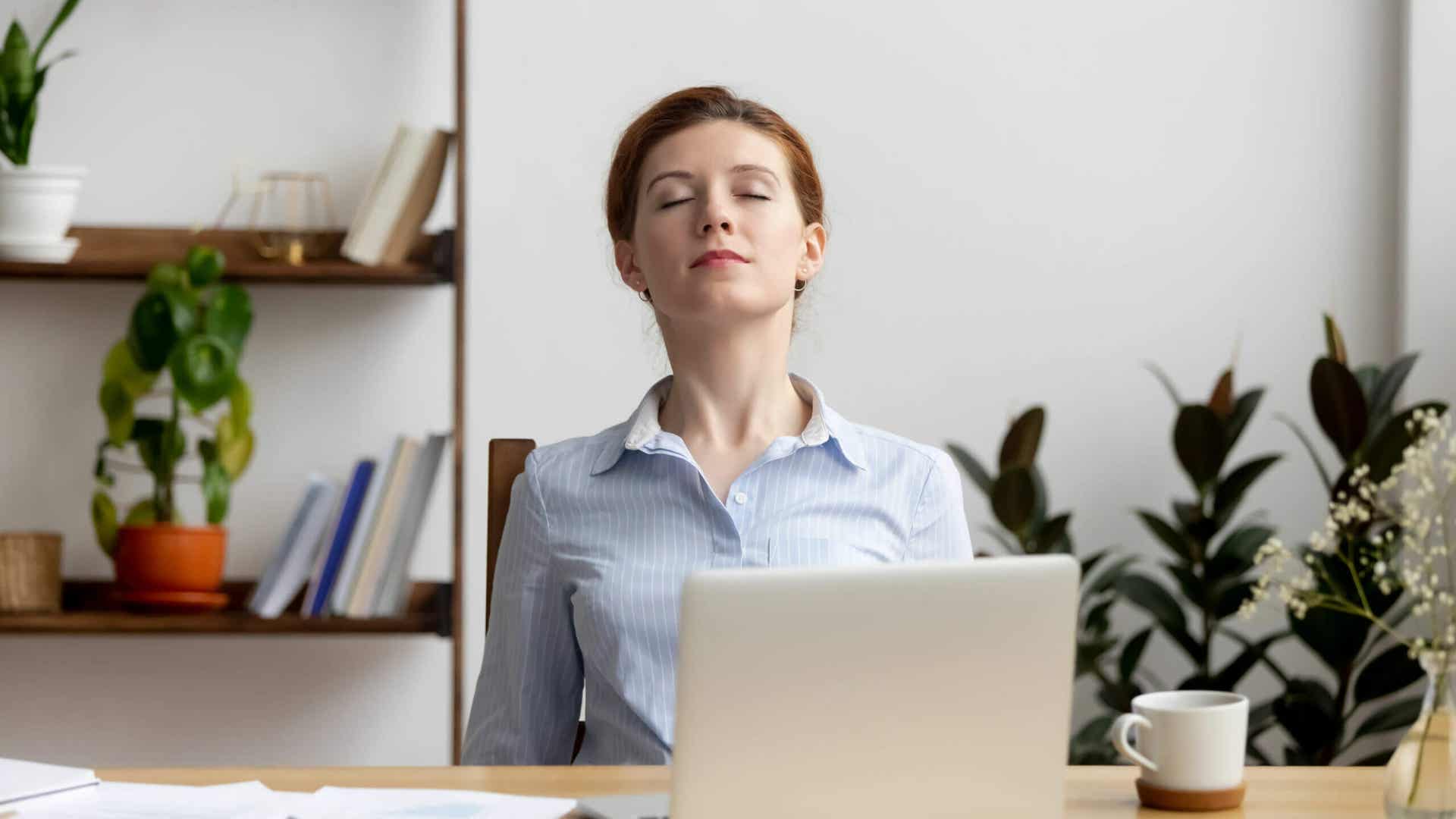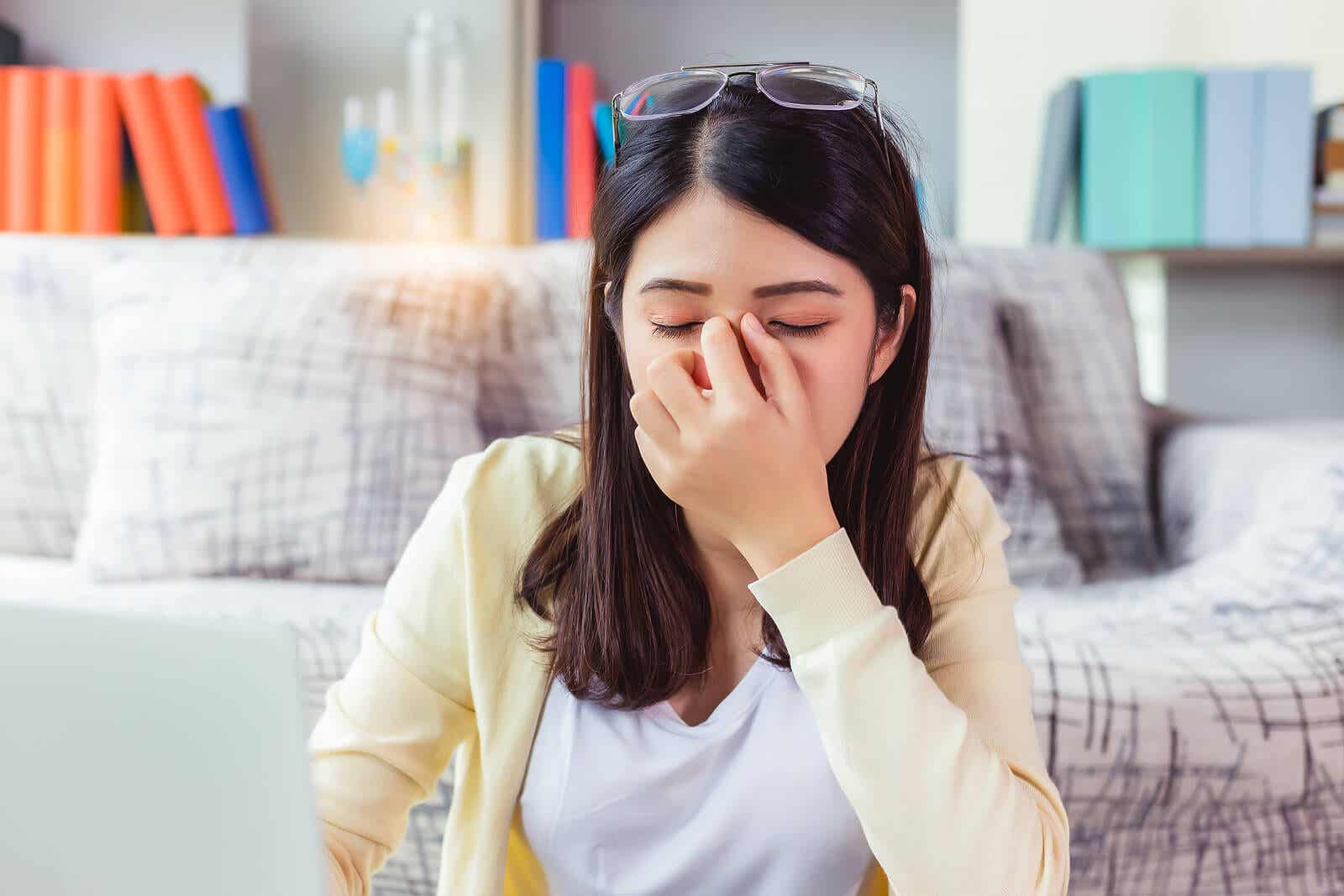How Effective Are Blue Light Filter Glasses?

Light is a complex phenomenon. It’s composed of a series of different waves that vary in their emission of energy. With some of them, such as blue light, we perceive the energy but don’t notice their color. Today we ask how effective blue light filter glasses are.
Approximately one-third of the waves visible to humans are blue light. They are of high frequency and energy, and some scientists think that when they strike the eye, they may have adverse effects.
To avoid such negative consequences, they suggest using filtered glasses. But are such filters effective or even necessary? Is blue light even harmful? We’ll answer these questions in this article.
Different sources of blue light

Although it’s not the only one, the sun is the main source of blue light. That’s why the cloudless sky is this color. And, when you’re outdoors during the day, you’re exposed to these waves almost constantly.
In addition, there are many other sources found indoors that are man-made, for example:
- Fluorescent lights
- LED lamps
- All plasma, LCD, LED, smart TVs
- Laptops and computer monitors
- Smartphones
- Tablets
- Video game devices
Almost without exception, electronic display screens emit blue light. And even though the amount of energy from these is relatively small compared to the sun, the point is that, according to survey results, most people interact for nearly ten hours a day with various devices, and hold them very close to their eyes.
Read more: The Impact of Screens on Visual Health
Why is blue light thought to be harmful?
We know that ultraviolet (UV) radiation is harmful to health, but scientists aren’t certain of the effects that other wavelengths can cause.
Fortunately, the cornea and lens effectively block UV rays and prevent most of them from reaching the retina. In fact, less than 1% get through, even without glasses.
However, the case with blue light is different, as it does pass through unchecked. In fact, practically all blue light reaches the retina.
With regard to the possible effects on eyesight, while it’s true that digital electronic devices emit this light, screens alone shouldn’t have such a significant effect.
As to whether it can cause fatigue or other problems, researchers haven’t yet come to a consensus. There may be several factors involved that can affect the eye. Among these are:
- Screens may cause fatigue because we spend too much time without our eyes changing focus
- Looking too closely strains the eye muscles
- There may be other sources (lamps, a window) that cause glare and make the eyes tired
Despite this, it’s clear from research evidence that blue light affects various physiological functions, including sleep.
For this reason, you should avoid watching television, using the telephone, or reading on a tablet at bedtime as it may affect your ability to fall asleep, since blue light regulates circadian rhythms.
Find out more: Tips to Prevent Dry Eye Symptoms Due to Screen Use
Can blue light from screens really affect vision?
It’s worth remembering that blue light is high energy, as mentioned, but it also has a relatively short wavelength. This means that it scatters easily, especially when there’s another source nearby.
As a result, when you’re trying to look at a screen, you constantly adjust your vision when trying to focus, which can contribute to increased eye fatigue.
Moreover, studies in lab animals, as well as experiments with cultures, have shown that short-wavelength visible light can induce phototoxic retinal damage.
In this sense, permanent exposure to blue light could affect sensitive cells in the retina. This may have effects similar to those of macular degeneration and even result in loss of vision that could become permanent.
However, other papers which have evaluated various studies found no evidence that any of these sources approached dangerous health limits, when compared to established limits and to what we absorb when looking at the sky, even with prolonged viewing times.
While many eye care professionals express concerns about the overuse of electronic displays, much more research is needed to determine the human eye’s tolerance limit for artificial blue light.
How do blue light filter glasses work?

Some people have to use electronic devices constantly; for example, those who work from home. For them, using blue light filters on device screens is an option.
Many such filters are available which are suitable for computer monitors, as well as tablets and smartphones. They significantly reduce the amount of blue light emitted without affecting the visibility of the device.
There are also glasses that serve the same purpose by reducing the amount of blue light that reaches the eyes, either from devices or from the sun. These are non-prescription glasses. If you wear corrective glasses, you can request blue light filter protection. In addition, anti-reflective coatings, such as photochromic lenses, also reduce some of the glare from screens and block some of the blue light.
Are blue light filter glasses useful?
Studies on the subject have found results that support both possibilities. Scientists’ opinions on the alleged benefit of using blue light filter lenses are conflicting. There doesn’t yet seem to be conclusive and widespread evidence that such filters, whether in screens or glasses, reduce eyestrain, especially considering that blue light is not the only cause of this problem.
However, using filters when looking at devices or being exposed to sunlight is an option, along with other measures, to help decrease or prevent long-term impairment.
Blue light isn’t a bad thing in its own right
So, why shouldn’t we block all sources of blue light around us? This isn’t possible or desirable for a number of reasons. To begin with, we obviously can’t eliminate the sun. Moreover, not all blue light is always harmful.
Its positive effects are related to cognitive functioning, memory, and even mood. For example, in the case of seasonal affective disorder, exposure to an HEV lamp is used as therapy.
So, it’s not necessary to eliminate this kind of light completely. But it is advisable to take precautions to reduce eye fatigue, such as regular breaks (5 minutes every half hour), not getting too close to the device, adjusting the brightness, font, and image size settings, among others.
All cited sources were thoroughly reviewed by our team to ensure their quality, reliability, currency, and validity. The bibliography of this article was considered reliable and of academic or scientific accuracy.
- Davies S, Elliott M, Floor E et al. Photocytotoxicity of lipofuscin in human retinal pigment epithelial cells. Free Rad Biol Med 2001; 31: 256– 265.
- Esaki Y, Kitajima T, Ito Y et al. Wearing blue light-blocking glasses in the evening advances circadian rhythms in the patients with delayed sleep phase disorder: An open-label trial. Chronobiology International. 2016; 33:8, 1037-1044.
- Kuse Y, Ogawa K, Tsuruma K, Shimazawa M, Hara H. Damage of photoreceptor-derived cells in culture induced by light emitting diode-derived blue light. Sci Rep. 2014; 4: 5223.
- Landon D, Barker C, Heath M et al. Evening wear of blue-blocking glasses for sleep and mood disorders: a systematic review. Chronobiology International. 2021; 24: 1-9.
- Lawrenson J, Hull C, Downie L. The effect of blue-light blocking spectacle lenses on visual performance, macular health and the sleep-wake cycle: a systematic review of the literature. Ophthalmic Physiol Opt. 2017; 37(6): 644-654.
- Sheppard A, Wolffsohn J. Digital eye strain: prevalence, measurement and amelioration. BMJ Open Ophthalmol. 2018; 3(1): e000146. doi: 10.1136/bmjophth-2018-000146.
- Sparrow J, Miller A, Zhou J. Blue light-absorbing intraocular lens and retinal pigment epithelium protection in vitro. J Cataract Refr Surg. 2004; 30: 873– 878.
- Vagge A, Ferro L et al. Blue light filtering ophthalmic lenses: A systematic review. Seminars in Ophthalmology. 2021; 18: 1-8. doi: 10.1080/08820538.2021.1900283.
-
Thrive Foundation of Youth. The Common Sense Census. commonsensemedia.org/sites/default/files/uploads/research/census_researchreport.pdf
-
Theoria, Vol. 18 (2): 69-80, 2009. LA RADIACIÓN ULTRAVIOLETA. SU EFECTO DAÑINO Y CONSECUENCIAS PARA LA SALUD HUMANA. https://www.redalyc.org/pdf/299/29917006006.pdf
- Mol Vis. 2016; 22: 61–72. Published online 2016 Jan 24. Effects of blue light on the circadian system and eye physiology. https://www.ncbi.nlm.nih.gov/pmc/articles/PMC4734149
- Ophthalmic & Physiological Optics. (2017). Blue-light filtering ophthalmic lenses: to prescribe, or not to prescribe? https://onlinelibrary.wiley.com/doi/full/10.1111/opo.12414
- Eye (Lond). 2016 Feb;30(2):230-3. Low-energy light bulbs, computers, tablets and the blue light hazard. doi: 10.1038/eye.2015.261. Epub 2016 Jan 15.
This text is provided for informational purposes only and does not replace consultation with a professional. If in doubt, consult your specialist.








